The Top Food and Agriculture Stories of 2013 in 10 Maps
1. No Farm Bill at Year's End
The Top Food and Agriculture Stories of 2013 in 10 Maps
1. No Farm Bill at Year's End
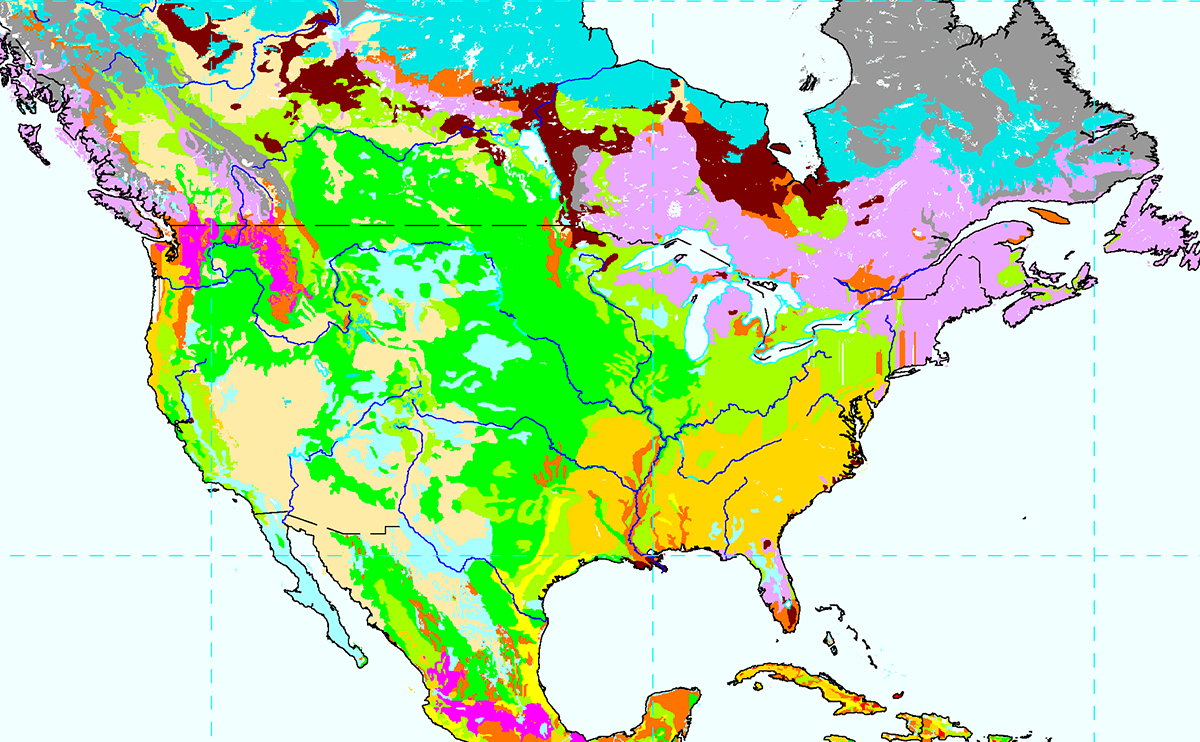
I know, hilarious! But what would it say if we could get together a map when congress — who has far more resources — can’t agree on a bill. Before leaving for winter recess, the house passed an extension to allow for more negotiation and a compromise appears close. Still, the farm bill squabbling of 2013 was a spectacle no one hopes to see repeated.

2013 saw battle lines drawn in the fight to label GMOs. Voters in Washington narrowly rejected a law requiring the mandatory labeling of all products with GMO ingredients, but GMO labeling laws passed the governor’s desk in Maine and Connecticut. Many more bills are waiting in state legislature around the country, so expect to hear lots of calls to “just label it” in 2014.
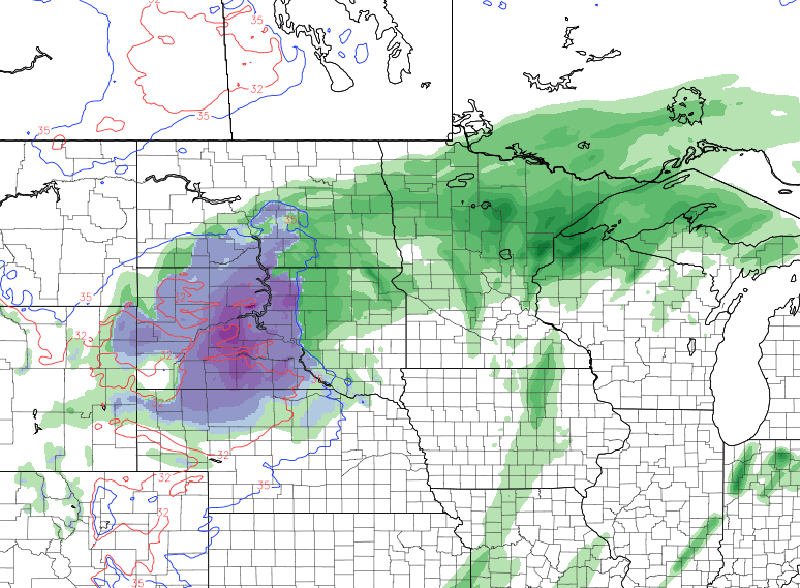
“There are no words to describe the devastation and loss,” said Joan Wink of Wink Cattle Company after a record breaking blizzard that pummeled South Dakota in early October. As the snow thawed, officials counted about 14,000 frozen cattle piled against fences and highway embankments, not to mention 1,200 sheep, 300 horses and 40 bison. While the herd losses will echo into the future, The South Dakota Rancher Relief Fund will be accepting donations for affected ranchers until the end of the year.
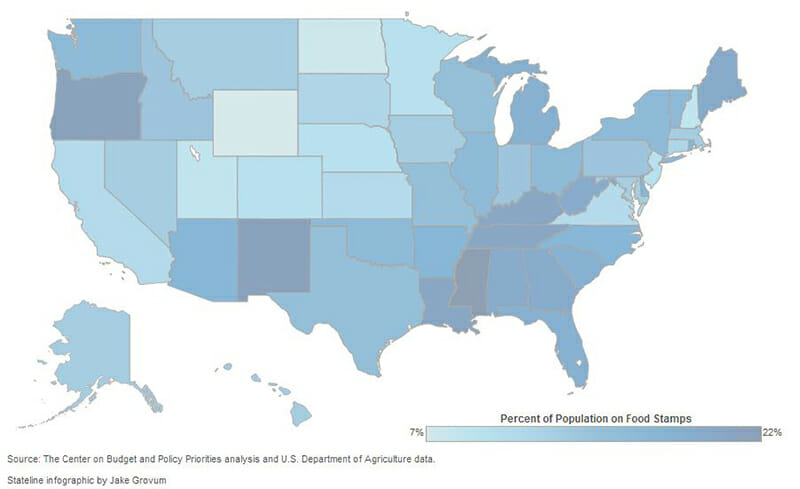
This year, congress refused to renew a 13.6 percent increase to the Supplemental Nutritional Assistance Program (SNAP) better known as food stamps. Cuts go even deeper in working versions of the farm bill. It’s a worry for states like Oregon, New Mexico and Mississippi which share a high reliance on the program.
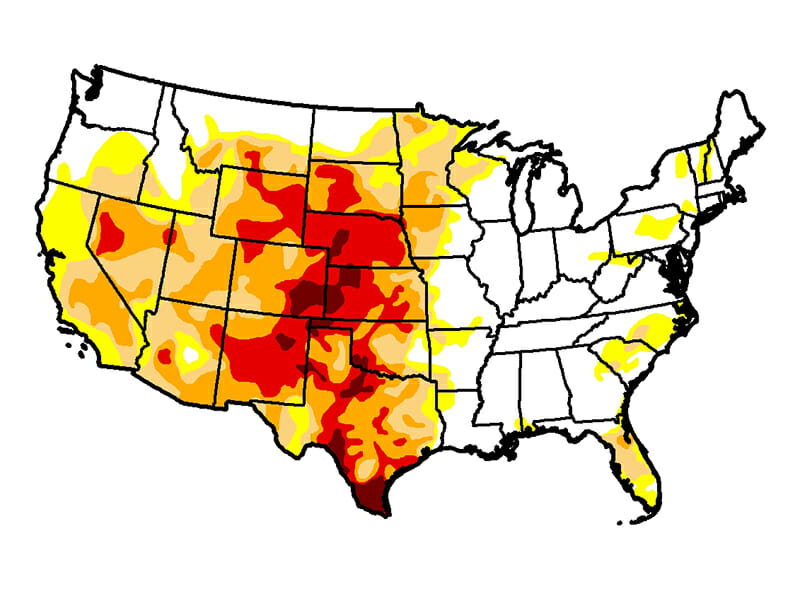
One moment, Midwestern farmers are seeing less rain than their grandfathers did during the Dust Bowl. The next, they are praying for the rain to stop. The shocking shift from dry to wet was the basic story for the heartland. Even so, most farms were able to hold onto their crops to produce the largest harvest in U.S. history.
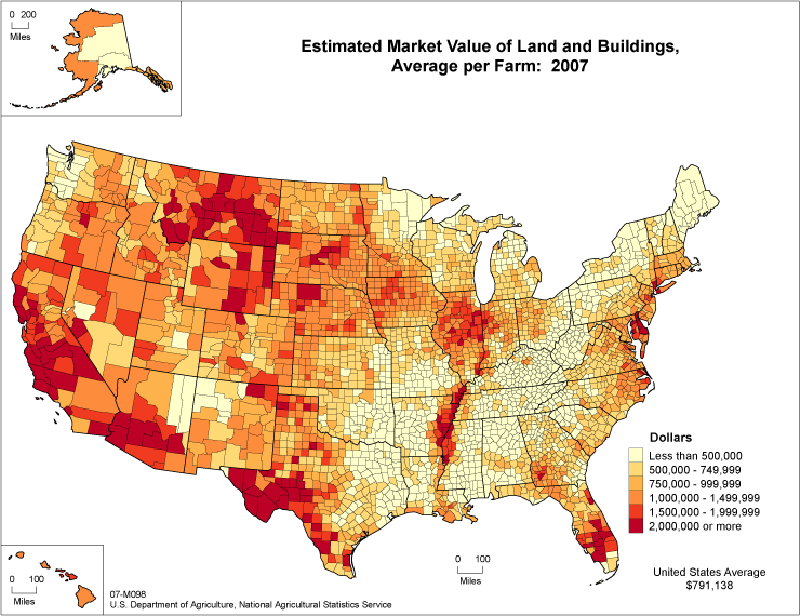
Today, farms are much more valuable than this 2007 map from the last farm census indicates. The last six years have been an economic celebration of modern industrial agriculture with farm real estate values increasing 9.4 percent from 2012 to 2013. The next few years, however, could be the hangover. Higher interest rates, lower crop prices and a less vigorous government push for bio-fuels threaten an end to agriculture boom times. Still, current farm land values are at record highs.

Even as farms boast record profits, their surrounding rural communities are struggling to hang on to fewer and fewer manufacturing jobs says a report from the U.S.D.A. Between April 2010 and July 2012, almost 44,000 people left non-metro counties. While that might sound small, it marks a significant shift from population growth in rural America prior to the recession. Such a loss comes with many unwanted side effects, including a reduced demand for jobs, lower wages and higher per capita costs for providing social services to rural communities.
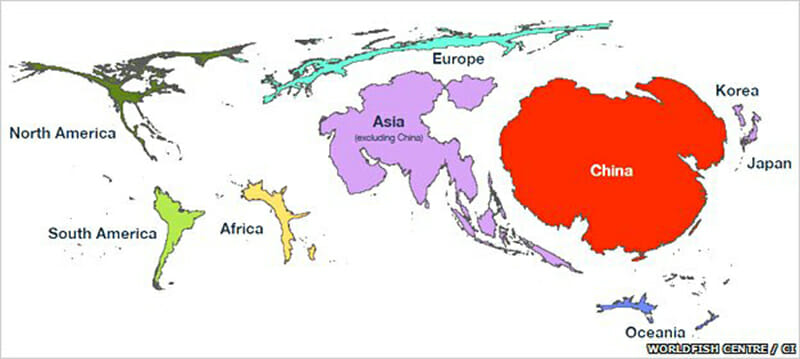
Sometime in the last year, the world quietly passed a seafood milestone according to the United Nations Food and Agriculture Organization. Now, most of the seafood we eat starts its life in fish farms or hatcheries rather than oceans, lakes, and rivers. The last 20 years has seen huge growth in aquaculture, especially in China. The country now accounts for 66 percent of the world’s farmed fish. It’s a trend many hope to see continue as fish farming can be one of the most efficient ways to make edible protein. Others, especially in the West, worry over the environmental impacts to wild ecosystems.

Sure, a plane or a satellite could have made the photo collage above, but it was a drone that pieced together the image of a farm in Sabah, Malaysia. Drone technology has huge promise for farmers, who could use semi-autonomous aircraft to get a bird’s-eye view of their operation. High-resolution images could help farmers catch diseases before they spread and use water and pesticides with a high degree of precision. In fact, many expect farms to be the top market for drones once the F.A.A. regulates use of the technology.

Demand for ethanol — the gasoline additive made from corn — just ain’t what it used to be. Corn prices fell to $4.22 a bushel following a proposal from the E.P.A. that would lower the mandated amount of ethanol in gasoline. It’s a steep decline for corn prices, which sold at $8 a bushel in the summer of 2012.
Top Image: U.S. soil taxonomy / USDA
Follow us

This work is licensed under a Creative Commons Attribution-NoDerivatives 4.0 International License.
Want to republish a Modern Farmer story?
We are happy for Modern Farmer stories to be shared, and encourage you to republish our articles for your audience. When doing so, we ask that you follow these guidelines:
Please credit us and our writers
For the author byline, please use “Author Name, Modern Farmer.” At the top of our stories, if on the web, please include this text and link: “This story was originally published by Modern Farmer.”
Please make sure to include a link back to either our home page or the article URL.
At the bottom of the story, please include the following text:
“Modern Farmer is a nonprofit initiative dedicated to raising awareness and catalyzing action at the intersection of food, agriculture, and society. Read more at <link>Modern Farmer</link>.”
Use our widget
We’d like to be able to track our stories, so we ask that if you republish our content, you do so using our widget (located on the left hand side of the article). The HTML code has a built-in tracker that tells us the data and domain where the story was published, as well as view counts.
Check the image requirements
It’s your responsibility to confirm you're licensed to republish images in our articles. Some images, such as those from commercial providers, don't allow their images to be republished without permission or payment. Copyright terms are generally listed in the image caption and attribution. You are welcome to omit our images or substitute with your own. Charts and interactive graphics follow the same rules.
Don’t change too much. Or, ask us first.
Articles must be republished in their entirety. It’s okay to change references to time (“today” to “yesterday”) or location (“Iowa City, IA” to “here”). But please keep everything else the same.
If you feel strongly that a more material edit needs to be made, get in touch with us at [email protected]. We’re happy to discuss it with the original author, but we must have prior approval for changes before publication.
Special cases
Extracts. You may run the first few lines or paragraphs of the article and then say: “Read the full article at Modern Farmer” with a link back to the original article.
Quotes. You may quote authors provided you include a link back to the article URL.
Translations. These require writer approval. To inquire about translation of a Modern Farmer article, contact us at [email protected]
Signed consent / copyright release forms. These are not required, provided you are following these guidelines.
Print. Articles can be republished in print under these same rules, with the exception that you do not need to include the links.
Tag us
When sharing the story on social media, please tag us using the following: - Twitter (@ModFarm) - Facebook (@ModernFarmerMedia) - Instagram (@modfarm)
Use our content respectfully
Modern Farmer is a nonprofit and as such we share our content for free and in good faith in order to reach new audiences. Respectfully,
No selling ads against our stories. It’s okay to put our stories on pages with ads.
Don’t republish our material wholesale, or automatically; you need to select stories to be republished individually.
You have no rights to sell, license, syndicate, or otherwise represent yourself as the authorized owner of our material to any third parties. This means that you cannot actively publish or submit our work for syndication to third party platforms or apps like Apple News or Google News. We understand that publishers cannot fully control when certain third parties automatically summarize or crawl content from publishers’ own sites.
Keep in touch
We want to hear from you if you love Modern Farmer content, have a collaboration idea, or anything else to share. As a nonprofit outlet, we work in service of our community and are always open to comments, feedback, and ideas. Contact us at [email protected].by Sam Brasch, Modern Farmer
January 1, 2014
Modern Farmer Weekly
Solutions Hub
Innovations, ideas and inspiration. Actionable solutions for a resilient food system.
ExploreExplore other topics
Share With Us
We want to hear from Modern Farmer readers who have thoughtful commentary, actionable solutions, or helpful ideas to share.
SubmitNecessary cookies are absolutely essential for the website to function properly. This category only includes cookies that ensures basic functionalities and security features of the website. These cookies do not store any personal information.
Any cookies that may not be particularly necessary for the website to function and are used specifically to collect user personal data via analytics, ads, other embedded contents are termed as non-necessary cookies.